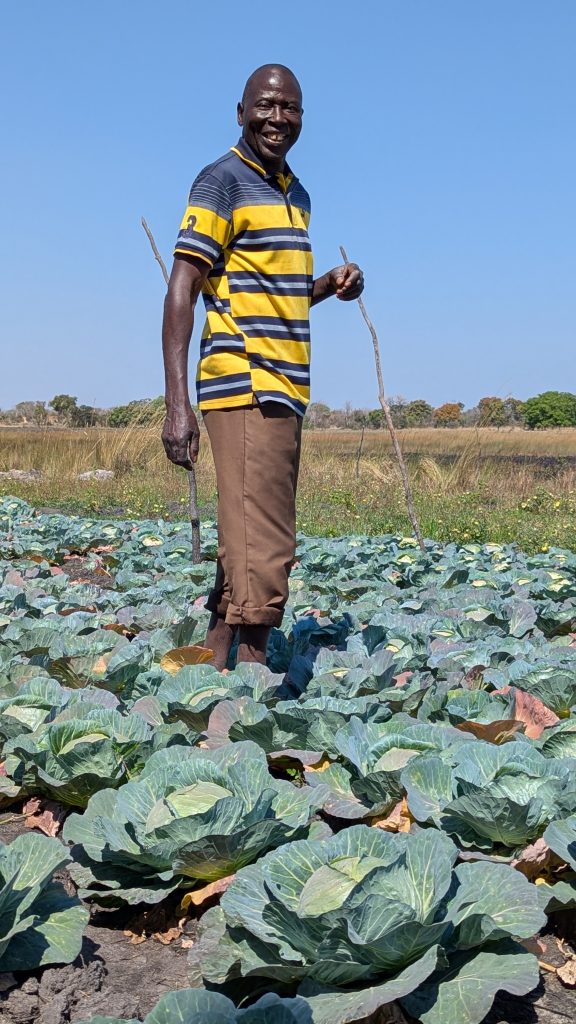In Sifuna village, Liangati ward of Senanga District, Western Province, 61-year-old small-scale farmer Mubita Sitali has turned sandy soil into a field of hope. A married father of six, Mubita has spent most of his life relying on farming to feed his family. Today, his story is a testimony of resilience and the power of learning.
As chairperson of the satellite committee at Liangati Primary School Garden, where 50 farmers come together under the Sustainable Livelihood Integrating Nutrition (SLIN) Project implemented by ADRA with support from Czech Development Aid, Mubita leads by example.
“ADRA has trained me on how to practice agroecology. I used to depend only on synthetic fertilizer, but my yields kept dropping. Now, with intercropping and the use of manure, my small garden is producing more than ever,” he explains proudly.
In an area where sandy soils discouraged gardening, Mubita has defied the odds. He planted over 1,500 heads of cabbage, and from his sales has already earned K4,200 with more still to sell.
“I have learnt that even in sandy soils, you can create a garden if you apply the right practices,” he says. “My goal is to inspire more smallholder farmers to take up gardening as a livelihood and reduce dependency on handouts.”
Mubita’s journey proves that with the right knowledge and commitment, what once seemed barren can flourish into green, life-sustaining abundance.

